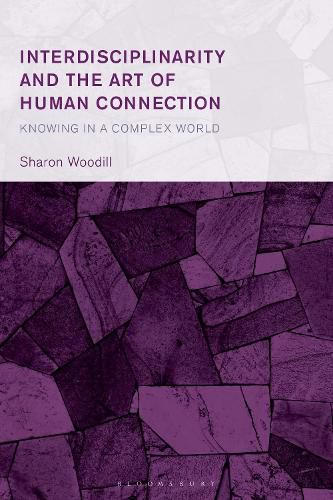Readings Newsletter
Become a Readings Member to make your shopping experience even easier.
Sign in or sign up for free!
You’re not far away from qualifying for FREE standard shipping within Australia
You’ve qualified for FREE standard shipping within Australia
The cart is loading…






This book examines interdisciplinarity through the lens of complexity theory, arguing for an understanding of interdisciplinarity that embraces the wisdom of complexity and not just the idea. Sharon Woodill critiques current interdisciplinary practices as often falling short of truly embracing complexity, instead grafting complexity theory onto existing reductionist frameworks that lead to disconnection.
Drawing on principles of self-organization and emergence, this book re-imagines the interdisciplinary process and integration that results. It advocates for an "epistemology of connection" that prioritizes human relationships, diverse perspectives, and engagement with ambiguity in knowledge practices. It examines the concept of diversity as an example of interdisciplinarity grounded in a fully-fledged complexity.
Throughout, the book advocates for a shift from capture-and-control approaches to knowledge towards an understanding of knowing as a participatory, emergent process. It emphasizes the facilitation of new insights through deep engagement with the complexity of each other and the worlds we inhabit.
$9.00 standard shipping within Australia
FREE standard shipping within Australia for orders over $100.00
Express & International shipping calculated at checkout
This book examines interdisciplinarity through the lens of complexity theory, arguing for an understanding of interdisciplinarity that embraces the wisdom of complexity and not just the idea. Sharon Woodill critiques current interdisciplinary practices as often falling short of truly embracing complexity, instead grafting complexity theory onto existing reductionist frameworks that lead to disconnection.
Drawing on principles of self-organization and emergence, this book re-imagines the interdisciplinary process and integration that results. It advocates for an "epistemology of connection" that prioritizes human relationships, diverse perspectives, and engagement with ambiguity in knowledge practices. It examines the concept of diversity as an example of interdisciplinarity grounded in a fully-fledged complexity.
Throughout, the book advocates for a shift from capture-and-control approaches to knowledge towards an understanding of knowing as a participatory, emergent process. It emphasizes the facilitation of new insights through deep engagement with the complexity of each other and the worlds we inhabit.